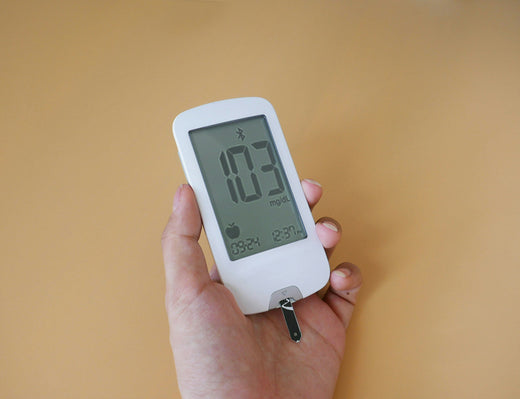Benefits of Peanuts for Type 2 Diabetes

Delicious and versatile peanuts offer a range of benefits that can be particularly advantageous for individuals with Type 2 diabetes. This article explores the potential health benefits of eating peanuts, including their impact on blood sugar control, weight management, and overall well-being.
Peanuts are a Low Glycemic Snack
Individuals with Type 2 diabetes should consume snacks with a low glycemic index (GI), which ranks carbohydrates based on how quickly they raise blood sugar levels. Peanuts have a low GI, meaning they are digested slowly and won’t cause a sudden spike in blood sugar. This makes peanuts a suitable snack for those with Type 2 diabetes.
Peanuts are a Heart-Healthy Choice for Diabetics
Incorporating peanuts into your diet may offer cardiovascular benefits. Studies have shown a potential link between regular peanut consumption and a reduced risk of cardiovascular disease, including heart disease and stroke.
This may be attributed to the presence of heart-healthy nutrients in peanuts, such as monounsaturated and polyunsaturated fats. These beneficial fats can help lower cholesterol levels, reduce inflammation, and improve blood pressure, all of which can help with cardiovascular health.
The Role of Peanuts in Diabetes Weight Management
Maintaining a healthy weight is crucial for individuals with Type 2 diabetes, and peanuts can play a valuable role in weight management strategies. The high fiber content in peanuts contributes to a feeling of fullness and satiety, helping to reduce cravings and prevent overeating between meals. And the protein in peanuts provides sustained energy essential for workouts and other physical activity that aids in weight loss efforts.
Peanut Plant Protein Can Reduce the Risk of Developing Type 2 Diabetes
Some studies suggest that incorporating peanuts and peanut butter into your diet may help reduce the risk of developing Type 2 diabetes. Research has shown that individuals who regularly consume nuts, including peanuts, may have a lower risk of developing this chronic condition compared to those who rarely eat them. This potential benefit may be attributed to the nutritional profile of peanuts, which are rich in unsaturated fats, fiber, and magnesium—nutrients that help reduce the risk factors associated with Type 2 diabetes.
Note: While peanuts are considered good for diabetics, they are relatively high in calories and should be eaten in moderation. Avoid peanut varieties that are coated in salt, sugar, chocolate, and other toppings.
From assisting with blood sugar control and reducing the risk of cardiovascular disease to providing essential nutrients like protein and fiber, the benefits of peanuts make these nuts a valuable addition to a weekly meal plan. Discover the health benefits of Hampton Farms peanuts for yourself. Visit our news section to learn more about our delicious and nutritious products.
Note: This content is for informational purposes only and not meant to serve as dietary advice. Always consult a doctor with questions.


Leave a comment